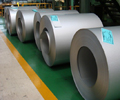Near-term gains of steel producers limited despite export duty rollback: Crisil

The government’s decision to withdraw export duty on steel products and raw materials will improve sector sentiment but may not materially increase the near-term earnings of domestic primary steel manufacturers because of subdued global demand, said CRISIL Ratings in a note.
“However, in the long run, it should improve export competitiveness of the additional capacities being set up,” said CRISIL.
The decision came after India’s finished steel exports plunged around 50% on-year in the first half of this fiscal to 3.6 million tonne, and for the first time since fiscal 2019, the country became a net steel importer between July and August.
“At present, world demand outlook is weak given recessionary headwinds. This is reflected in global steel prices, which are 5-7% lower3 than domestic prices. Between February and April — before the imposition of duty — the export premium was 2-3%. Exports have thus become less remunerative except for strategically regaining market share in geographies like Middle East and Europe,” the note said.
“Pellet producers could be the biggest beneficiaries of the reversal of export duty. That’s because, domestic prices are at a steep 35-40% discount to current global prices of $120-125 per tonne. While this incentivises exports, doing so would have a bearing on domestic primary steel producers as their input prices4 would rise. This, coupled with some inventory destocking through exports, could increase domestic steel prices by ₹500-1,000 per tonne in the near term,” Manish Gupta, senior director, Crisil Ratings said.
The government also increased import duty on coking coal, a key raw material for steel production, to 2.5% from nil earlier. Global coking coal prices have corrected ~45% between April and September.
The expected increase in domestic steel prices after the duty increase will thus not lead to earnings gain for primary steel producers. But their operating margin should rebound in the second half of this fiscal after moderating 14-15% in the first half5 mainly on the back of lower production costs.
In the long term, the removal of export duty will help increase export competitiveness of domestic steel makers, especially since they are in the process of adding 32-34 million tonne of capacity over the next five fiscals, which is more than 20% of current total capacity.
“While the increased capacity would mainly cater to domestic demand, which is slated to grow at a healthy 5-6% compound annual growth rate through fiscal 2027, improved export competitiveness will bolster utilisation and operating profitability. The government’s move is in line with its Atmanirbhar Bharat initiative, which aims to make India a steel producer of scale, and can position domestic producers as globally competitive backed by integrated operations,” Ankush Tyagi, associate director, CRISIL Ratings said.
“Credit profiles of domestic steel makers are seen stable with deleveraged balance sheets and robust cash accrual supporting continuing capital expenditure,” said Crisl.
That said, a sharper-than-expected correction in prices, weaker domestic demand, and significantly higher-than expected input costs will bear watching.
Source: Livemint

 Hellenic Shipping News Worldwide Hellenic Shipping News Worldwide, Online Daily Newspaper on Hellenic and International Shipping
Hellenic Shipping News Worldwide Hellenic Shipping News Worldwide, Online Daily Newspaper on Hellenic and International Shipping























 PG-Software
PG-Software